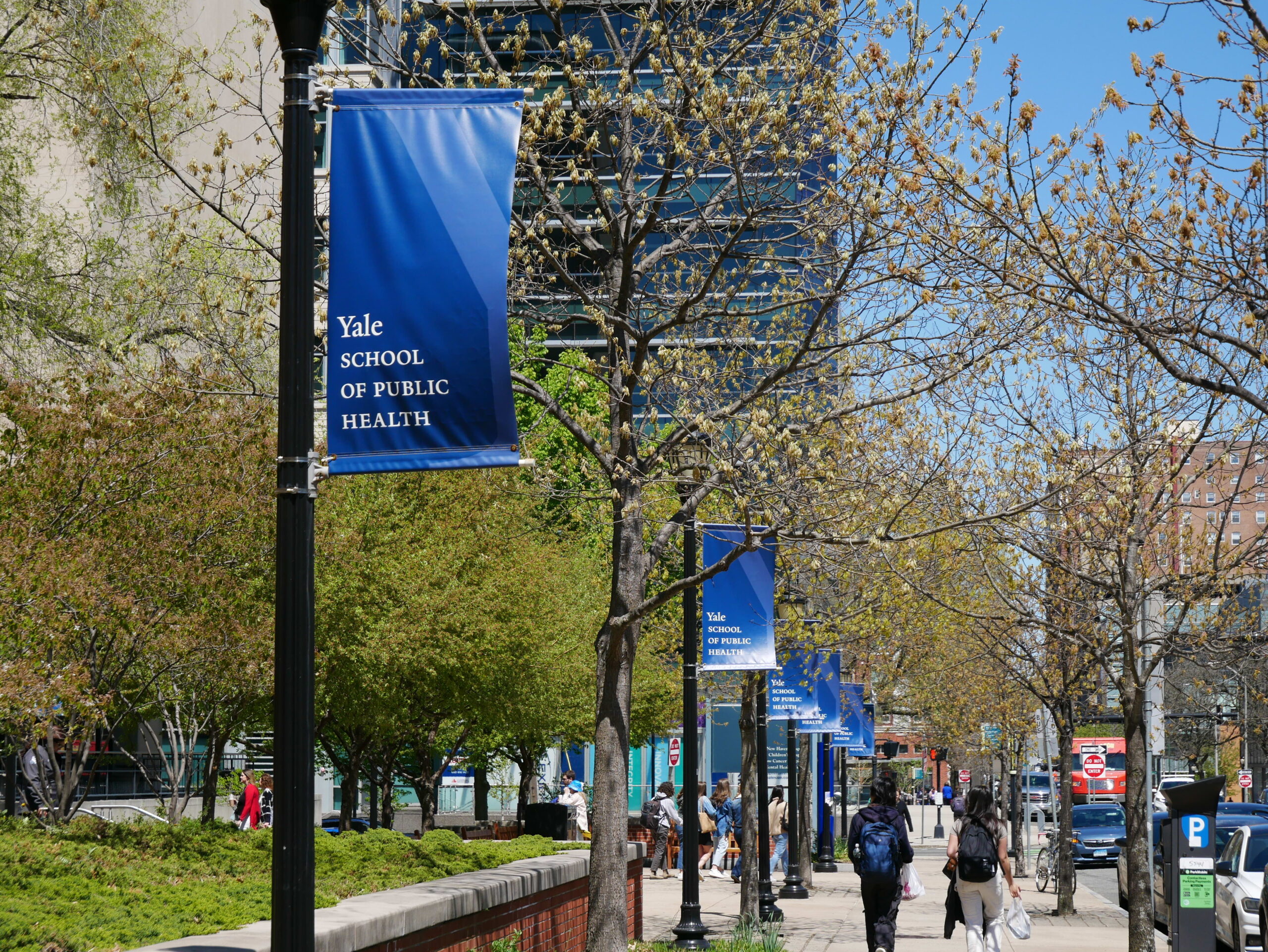Efforts to find missing Ukrainian children sustained by individual donors
Yale’s Humanitarian Research Lab is still working, seven months after the State Department withheld the federal funding it had relied on for three and a half years.

YuLin Zhen, Photography Editor
Yale’s Humanitarian Research Lab, whose work includes locating abducted Ukrainian children, survived federal funding cuts through private donor contributions.
The lab at the School of Public Health was launched in 2022 with $6 million in federal funding, but in February the State Department withheld its funding. The lab was nearly forced to close shortly after its funding was paused, but, thanks to donations to the lab through a special fundraiser, its staff now expects to be able to continue their work until January, according to Nathaniel Raymond, the lab’s executive director.
The lab uses satellite imagery and open source data to protect populations in crisis zones throughout the world. It is currently investigating the alleged trafficking of over 19,000 Ukrainian children to Russia.
“It has been the best of times and the worst of times,” Raymond said.
Since losing its funding, the lab has been operating in a state of uncertainty, according to Raymond. He described the difficulty of staff wondering month to month whether they will still hold a job and whether the mission of their lab will be able to continue. The team has had to reconstitute many of the systems and procedures it had relied on over the past three and a half years working with the U.S. government, Raymond said.
However, Raymond said, the loss of funding from the government has also provided the lab’s staff with a chance to see the public’s support for their work and interact with the people who directly support them.
“We’ve been able to experience something that academic research organizations very rarely ever experience, which is the people you’re doing the research on behalf of coming to save you in your hour of greatest need,” Raymond said.
Raymond described how gratifying the past months have been, receiving support and donations from ordinary people who care deeply for the cause in place of typical academic grants. Fundraising to sustain the lab’s work has revealed the relationships between the researchers and the public, especially Ukrainian American communities and activists.
For Marta Fedoriw, a member of the Ukrainian National Women’s League of America, the Humanitarian Research Lab’s research was her introduction to the kidnappings occurring in Ukraine. She first learned of the abductions in 2023, from a “60 Minutes” television segment that featured findings from the lab.
“That’s when I began the Return Ukraine’s Children initiative within the national organization,” Fedoriw said. “It was based on these findings being factual and something that we could depend on.”
Now, in her position as chair of the Return Ukraine’s Children initiative within the Ukrainian American women’s league, Fedoriw has helped to publicize the lab’s work and encourage donations to it.
The lab has received significant support from Yale alumni, as well as elected officials on both sides of the aisle. A bipartisan letter signed in June by 30 members of Congress — two of them Republicans — urged the State Department to maintain funding for the lab’s Ukraine Conflict Observatory. The lab is working to find support from non-U.S. governments and larger-scale philanthropic organizations.
“The lab has been the preeminent source of information and diligent work for years, a respected, unbiased, un-politically-affiliated group doing this incredibly important work,” Lydia Zaininger, the executive director of the Ukrainian Institute of America, said.
The lab’s current investigation efforts consist of determining the total number of Ukrainian children in Russian custody, identifying those children by name and determining where the children are located.
Prior to this project, the lab’s work had been geared towards documenting violations of international law and holding perpetrators accountable. Now, Raymond said, its research aims to contribute to the rescue of the captured children.
According to Raymond, the lab is on track to release its first report since the State Department defunding before the United Nations General Assembly in September. The report is expected to contain research supporting negotiation and other means of return for the children.
The Humanitarian Research Lab’s office is located in the School of Public Health building at 60 College St.







